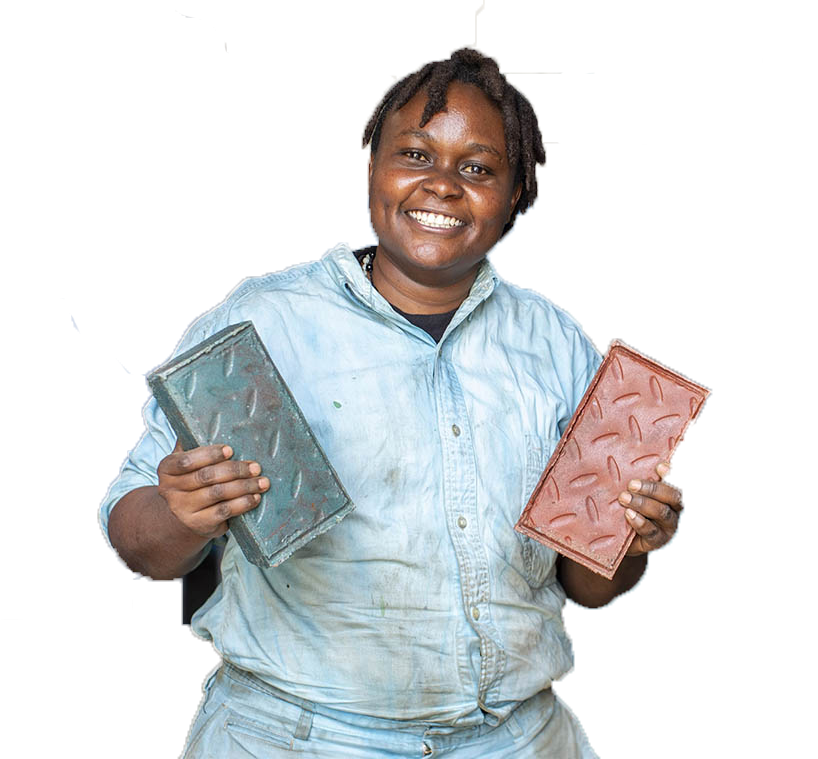“I was tired being on the sidelines,” Nzambi Matee said in a statement to Reuters. A material engineer from Kenya, Matee found herself growing more and more impatient with the government’s lack of motivation to handle the plastic waste problem.
Kenya is just one of many third world countries where plastic waste is leading to not only a human rights and child labor crisis, but also complete environmental devastation. While in a nation like the United States managing the plastic garbage falls to the government, in places like Kenya, it is the poorest individuals who must handle the waste. Matee took it upon herself to figure out a way to not only deal with the waste, but help the environment in the process.
Her start-up, Gjenge Makers, transforms plastic waste into durable bricks that are 5 to 7 times stronger than concrete. Matee collects waste for free from factories and pays for additional waste from other recyclers. These plastics are a mix of both high- and low-density polyethylene products. An example of a high-density polyethylene would be a shampoo bottle, whereas a low-density polyethylene would be a plastic sandwich bag. She does not, however, work with polyethylene terephthalate products, most commonly known as plastic bottles.
When these plastic materials arrive at Gjenge Makers, they are mixed with sand, heated, then compressed into bricks. From here, the bricks are sold depending on thickness and color to the surrounding area. Their most commonly purchased grey brick costs 850 Kenyan shillings or $7.70 USD per square meter.
Matee designed the machines utilized at Gjenge Makers herself and, since its founding in 2017, has successfully recycled 20 tonnes of plastic. Matee’s determination to be the change she wishes to see can serve as an amazing inspiration to us all – getting off the sidelines is completely within our control and might lead to great discoveries.




 Previous
Previous
